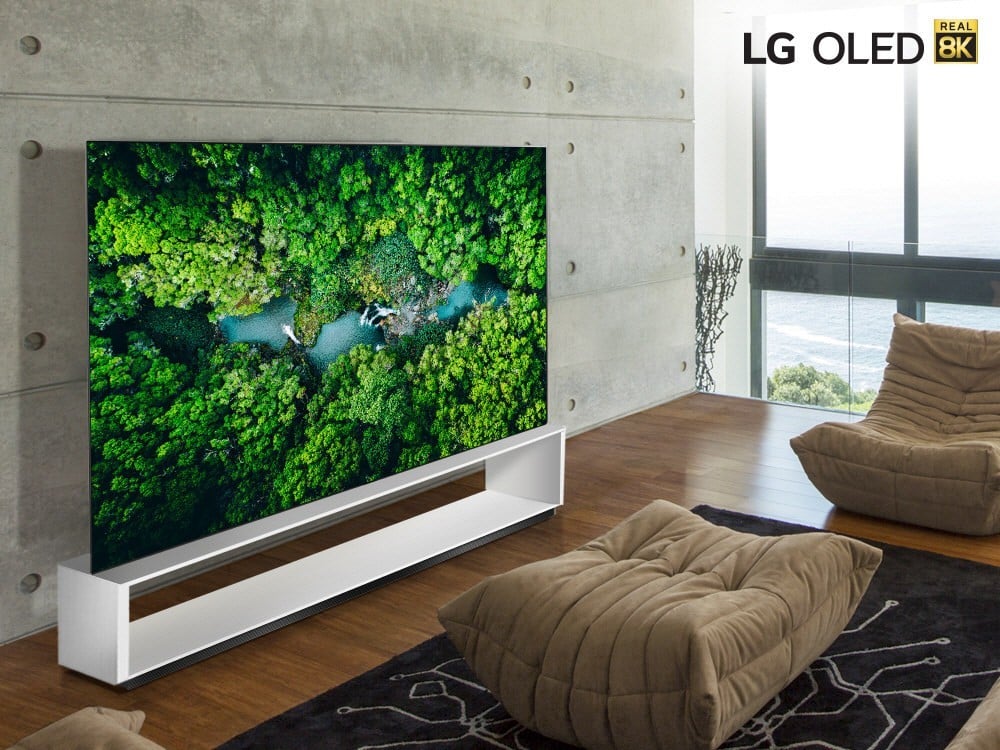LG will introduce its expanded 8K TV lineup next week at CES comprising eight TVs with 77- and 65-inch models joining LG’s existing 88- and 75-inch screen sizes. The range now includes 88- and 77-inch LG SIGNATURE OLED 8K TVs (models 88/77 OLED ZX) and LG NanoCell TVs (models 75/65 Nano99, 75/65 Nano97, 75/65 Nano95). LG says that each model “exceeds” the industry’s 8K Ultra HD definition standards set by the Consumer Technology Association (CTA) and backed up by independent labs like TÜV Rheinland.
The models listed here will achieve “Real 8K” and can play native 8K content with sources from HDMI and USB digital inputs, including HEVC, VP9 and AV1 codecs, the latter being backed by streaming providers including YouTube. The TVs also allow streaming at 60FPS and are certified to deliver 8K 60P over HDMI.

A new α (Alpha) 9 Gen 3 AI Processor with “deep learning technology” will deliver optimized picture and sound for all content using AI-based 8K upscaling, with a Quad Step noise reduction and sharpness enhancer increasing resolution and presentation of non-8K sources. The processor’s AI Picture Pro feature will recognize faces and text on-screen to fine-tune and sharpen each element for more natural skin tones and more readable characters, and Auto Genre will apply ideal picture settings for the type of content selected.
An AI Sound Pro technology analyzes audio of content in five categories (music, movies, sports, drama and news) for “clearer” dialog with boosted volume and improved background noise rendition, and audio is upmixed to a virtual 5.1 soundfield. IoT control is possible from the TV’s Home Dashboard and ThinQ voice recognition is built into all the 8K models, and the webOS smart TV platform supports Apple AirPlay 2, HomeKit, Google Assistant and Amazon Alexa (with Alexa far-field voice compatibility available for the future).
LG will be at booth #11100, Central Hall, Las Vegas Convention Center next week.
Martin, a seasoned journalist and AV expert, has written for several notable print magazines. He’s served in key roles at Lucasfilm’s THX Division, NEC’s digital cinema division, and has even consulted for DreamWorks. Despite his illustrious career, Martin remains rooted in his passion for cinema and acting, with notable appearances in several Spielberg films, Doctor Who, and Star Wars: The Empire Strikes Back. He currently resides in San Francisco.
Post Disclaimer
Some of our content may contain marketing links, which means we will receive a commission for purchases made via those links. In our editorial content, these affiliate links appear automatically, and our editorial teams are not influenced by our affiliate partnerships. We work with several providers (currently Skimlinks and Amazon) to manage our affiliate relationships. You can find out more about their services by visiting their sites.







Similar threads
- Robert_Zohn
- Displays
2 3- Martin Dew
- Displays
2